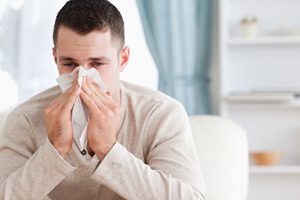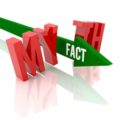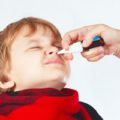
In an April 24 article featured by CNN Health, Dr. Clifford Bassett, Allergy and Asthma Care of New York's medical director, debunked some common myths and shared helpful information that can assist allergy sufferers during what experts are calling the worst pollen season in years.
Here's what Dr. Bassett had to say:
Certain foods can worsen symptoms – There are cross-reacting allergens found in pollen and particular fruits, vegetables and nuts that can trigger an allergic response. For example, if you have a grass pollen allergy, celery, melons and oranges may lead you to experience a scratchy throat and an overall swelling of the mouth.
Honey does not help build immunity to pollen – This is a common misconception, he notes, but a 2002 study from the University of Connecticut Health Center confirmed that honey wasn't any more effective in fighting allergy symptoms than a placebo.
Pets can spread allergens – If you have a dog or cat that spends a lot of time outside, chances are they'll carry some pollen back inside with them. One way to deal with this inevitability is to vacuum your floors more frequently and consider keeping your pet out of the bedroom during this time of the year.
In addition to seeing a specialist and using any medication you've been prescribed to combat your allergies, there are other actions you can take to reduce your symptoms this season. You may want to consider investing in a whole house air purifier, which removes allergens directly from the air and makes it easier for you to breath inside your home. If you spend a lot of time in your vehicle, a car cabin air filter can prevent pollutants from getting into the passenger compartment.









